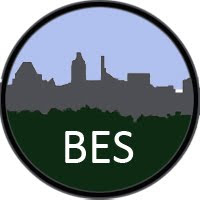A walk in the woods – 17 years later
Check out BES graduate student Ian Yesilonis’ post in the Short Stories About Long-Term Research blog. He writes about the ups and downs of urban field research over time. “In […]
This author has not written his bio yet.
But we are proud to say that Maribeth Rubenstein contributed 44 entries already.
Check out BES graduate student Ian Yesilonis’ post in the Short Stories About Long-Term Research blog. He writes about the ups and downs of urban field research over time. “In […]
BES has been a major source of integration among disciplines as it explores the structure, processes, and dynamics of Baltimore as a social-ecological system. Some key integrative and synthetic papers […]
Please check back soon for abstracts and photographs from the 21st Annual BES Research Conference.
BES has been underway for more than 20 years. Over that time, the many researchers, educators, and practitioners in the project have made significant contributions to understanding a metropolitan area as […]
As part of the Baltimore Ecosystem Study, Cary Institute scientists have been investigating how environmental and social conditions regulate mosquito numbers. Tiger mosquitoes (Aedes albopictus) were the focus of this […]
The Baltimore Ecosystem Study (BES) is a groundbreaking urban ecology research project that launched in 1997 and, 22 years later, is still…producing novel and important research. As one of the […]
‘Towards an urban marine ecology: characterizing the drivers, patterns and processes of marine ecosystems in coastal cities’ by Peter A. Todd, Eliza C. Heery, Lynette H. L. Loke, Ruth H. […]
Our co-PI Dr. Christopher Swan talks about his rewilding efforts in Baltimore. Could greening vacant lots and ‘ungardening’ yards can lead to more ecosystem services and better public health? Read […]
Brief description The watershed approach, i.e. monitoring inputs and hydrologic outputs of nutrients, has long been fundamental in ecosystem ecology, and is an important component of many sites in the […]
This research was supported by funding from the NSF Long-term Ecological Research (LTER) Program. This material is based upon work supported by the National Science Foundation under Grant Nos. DEB-1637661 and DEB-1855277. Any opinions, findings, and conclusions or recommendations expressed in this material are those of the author(s) and do not necessarily reflect the views of the National Science Foundation.
The Baltimore Ecosystem Study has been a National Science Foundation Long Term Ecological Research (LTER) site since 1998. Visit other LTER sites.
 |
 |
